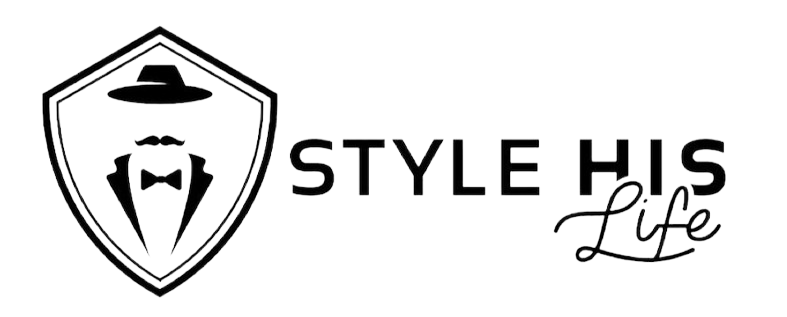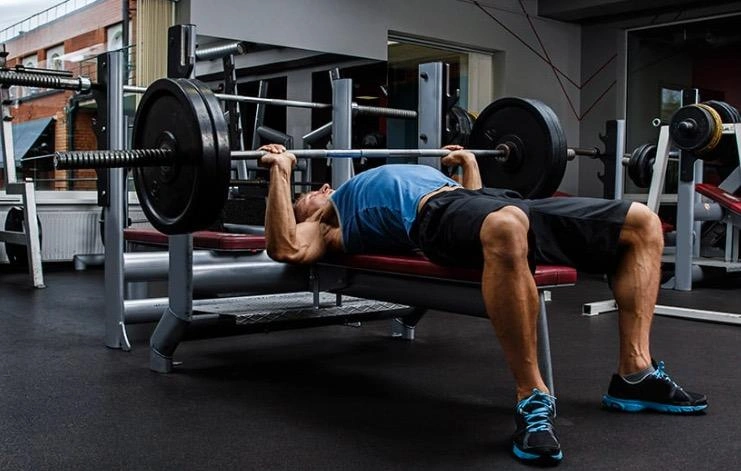Intro: Exploring Muscle Building in a Caloric Deficit
A common belief in the fitness community is that you must consume a caloric surplus to build muscle. This means eating more calories than your body burns in a day in order to provide the extra energy needed for muscles to grow and repair.
While a caloric surplus can facilitate muscle growth, the question arises: Is it possible to build muscle while in a calorie deficit?
This blog explores whether muscle growth can occur in a calorie deficit. We will explore the basics of muscle hypertrophy, define a calorie deficit, and examine the factors influencing muscle gain while consuming fewer calories than your body burns.
Muscle Growth and Calorie Deficit Basics
Muscle Growth (Hypertrophy)
Muscle growth, also known as hypertrophy, occurs when muscle fibers experience damage or stress from resistance training or physical activity. This stress stimulates the muscle fibers to repair and grow larger and stronger.
The process of muscle protein synthesis plays a crucial role in this, as it repairs the torn muscle fibers, leading to an increase in muscle mass over time.
For hypertrophy to occur, the body needs adequate nutrients, particularly protein, to fuel the repair and growth of muscle tissue. Traditionally, a caloric surplus is believed to be necessary to provide these nutrients and the energy required for muscle protein synthesis.
What is a Calorie Deficit?
A calorie deficit occurs when you consume fewer calories than your body needs to maintain its current weight. This energy deficit forces the body to use stored fat as an energy source, leading to fat loss. While in a caloric deficit, the body prioritizes using stored energy to preserve essential functions and muscle mass.
Calorie deficit work involves maintaining this energy shortfall to lose weight, which can make muscle gain more challenging.
Can You Build Muscle in a Calorie Deficit?
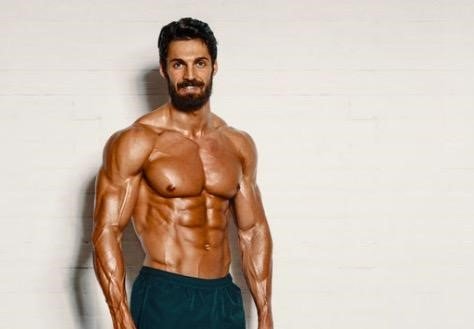
Examining the Research Supporting Muscle Gain While in a Calorie Deficit
Building muscle mass in a calorie deficit challenges the conventional wisdom that a caloric surplus is required for muscle growth. However, recent scientific research suggests that building muscle mass in a calorie deficit is possible under certain conditions.
Studies have shown that muscle gain can occur even when caloric intake is less than maintenance levels, provided that other key factors are optimized.
Research indicates that a high-protein diet is crucial for achieving muscle gain while in a calorie deficit. Protein is extremely important for muscle protein synthesis, which repairs and builds muscle fibers.
Adequate protein intake can help offset the potential muscle loss often accompanying a caloric deficit. Additionally, resistance training has been shown to stimulate muscle hypertrophy even when fewer calories are consumed.
Conditions Under Which Muscle Growth in a Calorie Deficit Is Possible
Muscle growth in a calorie deficit is more achievable for certain groups of individuals. For beginners and overweight individuals, gaining muscle in a calorie deficit is particularly feasible.
Beginners often experience rapid strength and muscle gains, known as “newbie gains,” due to their muscles responding quickly to resistance training. Overweight individuals have more energy reserves in the form of body fat, which can be used for muscle repair and growth.
Another condition that supports muscle growth in a calorie deficit is an optimized training and nutrition plan. Prioritizing protein intake, ensuring progressive overload in resistance training, and focusing on recovery can help build muscle while losing fat.
By maintaining a consistent workout routine and a protein-rich diet, individuals can achieve muscle hypertrophy even while consuming fewer calories.
Tips and Strategies for Achieving a Calorie Deficit
Achieving a calorie deficit is essential for fat loss while maintaining or building muscle. Here are comprehensive tips to help you successfully create and sustain a calorie deficit.
1. Tips for a Calorie Deficit:
- Intermittent Fasting: Restricting your eating window can naturally reduce your total daily calories, making it easier to maintain a deficit and support fat loss.

- Eat High-Volume, Low-Calorie Foods: Incorporate plenty of vegetables and fruits that are low in calories but high in volume, helping you feel fuller while consuming less.
- Stay Hydrated: Drinking lots of water before meals can reduce hunger and prevent overeating, aiding in maintaining a calorie deficit.
- Mindful Eating: Pay attention to any hunger cues and avoid distractions while eating to prevent unnecessary calorie consumption. This practice helps control portion sizes and overall intake.
2. Steps to Implement a Calorie Deficit:
- Calculate Your Caloric Needs: Use an online calculator to accurately track your Total Daily Energy Expenditure (TDEE). Try to consume fewer calories than this number to create a deficit.
- Track Your Intake: Use apps or journals to monitor your daily food intake, focusing on maintaining a consistent deficit over time.
- Prioritize Protein: Make sure you have adequate protein intake to support muscle maintenance and growth. Try to aim for 1.6 to 2.2 grams per kilogram of body weight per day.
Key to Building Muscle While Losing Fat
Consume Enough Protein for Muscle Repair
Consuming enough protein is paramount for those aiming to gain muscle while having a calorie deficit. Protein supports muscle repair and growth by providing amino acids for muscle protein synthesis.
When protein intake is sufficient, the body can better manage muscle repair despite being in a caloric deficit.
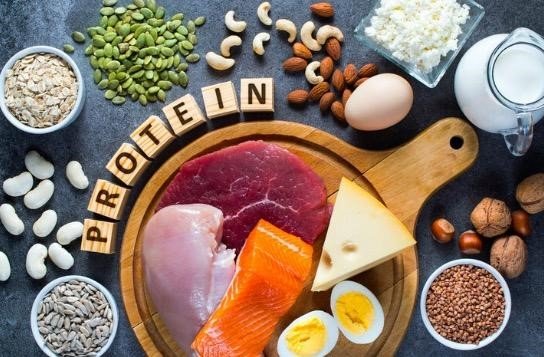
It’s important to know your daily protein requirements for muscle building in a deficit. As mentioned above, typically, consuming 1.6 to 2.2 grams of protein per kg of body weight per day is recommended for those looking to preserve and build muscle mass.
This protein intake helps support muscle hypertrophy by fueling muscle protein synthesis and preventing muscle loss during weight loss.
Importance of Resistance Training
Resistance training plays a crucial role in stimulating muscle growth, especially when trying to enhance muscle growth on a calorie deficit. Regular resistance training helps maximize muscle gain by challenging muscle fibers, thus promoting hypertrophy.
Effective resistance training strategies include incorporating compound exercises that target multiple muscle groups, progressing in weight and intensity, and ensuring adequate volume to stimulate muscle growth.
Implementing these strategies can help achieve muscle gain and improve muscle mass, even while losing fat.
Progressive Overload and Muscle Growth
Progressive overload is an essential principle for building muscle mass. It involves gradually increasing the weight, frequency, and/or number of repetitions in resistance training exercises to continually challenge the muscles. This constant progression stimulates further muscle growth and adaptation.
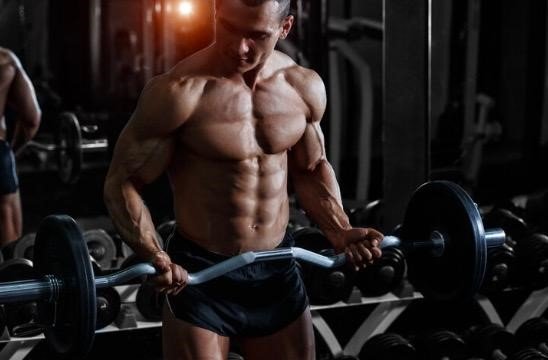
Incorporating progressive overload in your workout routine ensures that your muscles are consistently challenged, promoting hypertrophy. Be sure to track your workouts and progressively increase the intensity to avoid plateaus and continue building muscle in a calorie deficit.
Muscle Repair and Recovery
Recovery is critical for muscle repair and growth. Adequate sleep and rest allow the muscles to heal and grow after resistance training. Ensuring enough sleep and recovery time helps maintain muscle mass and support overall muscle growth.

Tips for optimizing recovery include getting 7-9 hours of quality sleep per night, incorporating rest days into your training schedule, and managing stress levels through relaxation techniques.
Effective recovery enables you to maximize your muscle gain while losing fat and prevents overtraining and injury.
Combining Caloric Deficit and Muscle Gain
Strategies for Losing Fat While Preserving or Gaining Muscle Mass
Losing fat while preserving or gaining muscle in a caloric deficit can be challenging, but it’s entirely possible with the right approach. One effective strategy is to ensure you have an adequate protein intake.
Higher protein consumption helps maintain muscle protein synthesis and prevents muscle breakdown, which is crucial when developing muscle mass during a calorie deficit.
For info on the best protein sources, check out our top protein sources for muscle growth and testosterone.
Finally, combining resistance training with high-intensity interval training (HIIT) can be particularly effective. Resistance training preserves and builds muscle, while HIIT helps burn calories and reduce body fat.

Check out this article for HIIT workout ideas: HIIT Workouts for Lean Muscle: 7 Benefits You Didn’t Know.
A well-structured workout routine that includes these elements ensures that you can lose fat while simultaneously building muscle. This approach lets you see significant muscle gain and fat loss, optimizing your overall body composition.
What are the Benefits of Simultaneous Muscle Gain and Fat Loss
Achieving muscle gain while losing fat offers numerous benefits. First and foremost, it enhances your overall body composition. When you build muscle while losing fat simultaneously, you create a leaner, more defined physique.
This improves your physical appearance and boosts your metabolism, which makes it a lot easier to maintain a healthy weight.
Simultaneous muscle gain and fat loss also provide functional benefits. Increased muscle mass improves strength, endurance, and physical performance, which also makes everyday activities easier and more efficient.
By efficiently managing your diet and training, you can achieve a synergistic effect where you build muscle and lose fat, resulting in a healthier and more balanced body.
Common Challenges and How to Overcome Them
Maintaining Energy Levels
Increasing muscle growth while in a calorie deficit comes with several challenges. One common challenge is maintaining energy levels.

Consuming fewer calories often reduces energy levels, impacting workout performance and overall motivation. Another challenge is simply staying motivated throughout the process, as progress may seem slower than in a caloric surplus.
Strategies for Overcoming These Challenges
To maintain energy levels, focus on nutrient-dense foods that provide sustained energy. Make sure you include complex carbohydrates, healthy fats, and lean proteins in your meals to ensure you have the necessary fuel for your workouts and daily activities.
In addition, staying hydrated and ensuring you are getting enough sleep can help maintain energy levels.
For tips on maintaining high testosterone levels, read our guide on the 5 Best Lifestyle Hacks for Higher Testosterone.
To stay motivated, it’s important to set realistic goals and track your progress. Celebrate small victories along the way, such as lifting heavier weights or noticing physical changes in your body.

Surround yourself with a support system, whether it’s workout partners, a fitness community, or a coach, to keep you accountable and motivated.
By implementing these tips, you can overcome most of the challenges of building muscle in a calorie deficit and stay on track toward your fitness goals.
Conclusion
Developing muscle mass during a calorie deficit is indeed possible. By focusing on muscle growth through resistance training and ensuring enough protein intake, you can effectively gain muscle while losing fat. Remember, muscle repair and recovery are crucial, so allow your body adequate rest and nutrition.
Experimenting with these strategies under professional guidance can help you achieve your fitness goals. Embrace the journey, and you might become one of the success stories of those who have built muscle while losing fat in a calorie deficit.
FAQ for Gaining Muscle in a Calorie Deficit
1. Is it possible to build muscle in a calorie deficit?
Yes, it is possible to build muscle in a calorie deficit. While a calorie surplus can promote muscle growth, with the right combination of resistance training and protein intake, you can still build muscle while losing body fat.
2. How does a calorie deficit affect muscle growth?
A calorie deficit entails consuming fewer calories than your body needs for maintenance, which can lead to fat loss. However, with proper nutrition and strength training, it is possible to support muscle growth even in a calorie deficit.
3. What is the role of protein in muscle growth while in a calorie deficit?
Protein is essential for muscle repair and growth. Adequate protein intake supports muscle recovery and helps prevent muscle loss while losing weight, making it necessary for those aiming to build muscle in a calorie deficit.
4. How much protein do I need to consume to support muscle growth in a calorie deficit?
To maximize muscle growth, aim to consume 1.6 to 2.2 grams of protein per kg of body weight daily. This helps provide enough protein to support muscle repair and growth even in a calorie deficit.
5. What type of training is best for building muscle while in a calorie deficit?
Resistance training is key to building muscle while in a calorie deficit. Adding compound exercises that target multiple muscle groups can promote muscle hypertrophy and improve lean muscle mass.
6. Can I lose fat and gain muscle at the same time?
Yes, losing fat and gaining muscle simultaneously is possible, especially with a moderate calorie deficit and a focus on resistance training and protein intake. This approach helps improve body composition by reducing fat mass while building lean muscle.
7. How important is muscle recovery in a calorie deficit?
Muscle recovery is critical for growth and repair. Ensuring adequate sleep, rest, and nutrition supports muscle function and recovery, helping you build muscle even in a calorie deficit.
8. What are the benefits of simultaneous muscle gain and fat loss?
Simultaneous muscle gain and fat loss enhance your overall body composition, leading to a leaner and more defined physique. It also boosts metabolic rate and improves physical performance, making everyday activities easier.
9. What challenges might I face when building muscle in a calorie deficit?
Common challenges include maintaining energy levels and staying motivated. Eating nutrient-dense foods and getting enough rest can help overcome these challenges and support your fitness goals.
10. How can I stay motivated while building muscle in a calorie deficit?
It’s important to set realistic and achievable goals, track your progress, and celebrate small victories. Surround yourself with supportive friends, family, or workout partners to keep you accountable and motivated throughout your fitness journey.
